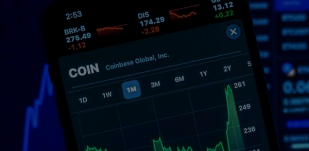How to Manage Your Pension from Abroad and Make the Most of Your Money
Paul Reilly
Chief Commercial Officer
Don’t think of retirement as the autumn of your years. View it as an exciting opportunity to start a brand-new chapter in your life. The commute, back-to-back meetings and tight deadlines are a thing of the past and the time has finally arrived to realise your dream of moving to a new country. Or perhaps you’ve already made the move and your overseas lifestyle is everything you hoped it would be.
You will be joining an army of like-minded people with a wealth of life experience: according to the Office for National Statistics, 26% (207,300) of the 784,900 British citizens living in the EU are aged 65 and over. Spain and Portugal are particularly popular destinations, with sunseekers in this age bracket making up 41% and 39% of the British expat population respectively.
How does this adventurous section of society fund their life overseas once the daily grind is over and their salary has ceased? Pension transfers are a vital – and often the main – source of income for retired expats. These savings are reward for years of hard work throughout your career. So, make sure you understand how to manage a pension from abroad and how to move it into the local currency without falling foul of currency market risk.
Whether you’re retiring to a country in the European Union (EU) - Spain, France, Italy and Portugal are particular favourites with British expats - or somewhere further afield like the USA, Canada, Australia or New Zealand, there are two options available when it comes to managing your pension overseas: the Qualifying Recognised Overseas Pension Scheme (QROPS) or the Self-Invested Personal Pension (SIPP) - under the right circumstances these schemes can provide greater control over your pension and reduce your tax bill.
Sign up for a free account
Qualifying Recognised Overseas Pension Scheme (QROPS)
The Qualifying Recognised Overseas Pension Scheme (QROPS) programme was established as part of British legislation launched on 6 April 2006, as a direct result of EU human rights requirements of the freedom of capital movement. A QROPS - an overseas pension that meets the rules of where they are located - enables you to pay your pension into a bank account in your new country of residence.
QROPS meets certain requirements set by Her Majesty’s Revenue and Customs (HMRC), allowing you to transfer your UK pension into the scheme without being stung with additional charges or incurring any unauthorised payments.
In addition to offering investment and currency flexibility, QROPS allows British expats to avoid UK taxation provided you remain a tax resident outside the UK. The scheme is also popular with expats because it can be transferred to an appointed beneficiary in the event of the scheme holder’s death.
HMRC will only allow you to transfer a pension overseas if the scheme meets certain criteria: you must be living, or going to live, abroad, and you must remain living abroad. It will take around ten years of being a non-resident and moving your pension to a QROPS for the benefits to be realised, making it vital to consider your options as early as possible.
There are numerous benefits to be gained from transferring your pension into a QROPS, including:
- Tax-free growth
- Currency choice
- Greater investment choice
- Avoidance of inheritance taxes
- Tax-free lump sum (can be up to 30%)
Adjustments were made to the QROPS in 2015, which impacted the qualifying criteria and the countries covered. Therefore, it is recommended that you seek expert advice from an independent financial adviser about QROPS.
Self-Invested Personal Pension (SIPP)
A Self-Invested Personal Pension (SIPP) is a type of UK government-approved personal pension scheme that allows individuals to make their own investment decisions from the full range of investments approved by HMRC.
Placing your hard-earned professional savings into a SIPP provides you with the flexibility to invest your pension in a variety of ways (with applicable tax charges), including:
- Overseas property
- Stocks and shares on an official exchange
- Futures and options traded on official future exchanges
- Authorised UK unit trusts
- Unlisted shares
- Investment trusts - subject to Financial Conduct Authority (FCA) regulation
- Commercial property
- Ground rents
- Residential property
- Gold bullion
- Tangible moveable property with a market value below £6,000
- Exotic assets such as vintage cars, wine, stamps and art
(This is not an exhaustive list and some investments may be subject to tax charges.)
There are four different types of SIPP that fall into two categories: a Low-cost SIPP that you have full control over and a Full SIPP which offers a wide choice of investments that you receive advice on - this typically comes with higher charges.
- Deferred: a personal pension plan that holds most/all of the assets in insured pension funds and self-investment withdrawal is delayed/deferred until a later date.
- Hybrid: a portion of assets must be held in conventional insured pension funds, and the rest can be self-invested.
- Pure/Full: offers unrestricted access to several acceptable investment asset classes.
- SIPP Lite/Single Investment: This involves placing all funds in one main asset with much lower fees.
For your pension payments
State Pensions for UK nationals in the EU, EEA or Switzerland

When you retire overseas, you must inform the government office that deals with your UK State Pension. Despite Brexit, you can still receive your UK State Pension if you move to live in the EU, EEA or Switzerland, and you can still claim your UK State Pension from these countries. Your UK State Pension will be increased each year in the EU in line with the rate paid in the UK. If you move to a country outside of the EU, EAA or Switzerland, you won’t receive annual increases, unless, of course, you move back to the UK.
You could be eligible to claim a state pension from the country you are living and working in if you are paying into its state pension programme. Seek independent financial advice to determine your eligibility to claim.
Can I pay into a pension scheme back home?
If you work overseas and want to pay into a pension scheme in the UK, there is no limit on how much you can pay into the scheme. However, you should be aware of any limitations on tax relief you can claim, and that currency risk could impact how much of the money you transfer to the UK makes it back into your pension.
Get the right help
Managing your pension having moved overseas can be complicated and time-consuming, so seeking trusted, expert advice is essential. A financial adviser with specific knowledge of overseas pension matters can help you understand and take advantage of the right scheme for your circumstances.
Once all the technical stuff is taken care of and you're ready to start transferring your pension to your new home, it’s time to think about your exposure to currency market risk. A currency specialist can help you manage the impact of fluctuating exchange rates on the value of your pension payments.
Exchange rates
Currencies are traded around the clock - 24 hours a day. Therefore, the value of the pound against other currencies is constantly changing - not just daily but by the minute. Even slight fluctuations can make a big difference to the value of your international pension payments.
The impact of the political and economic variables that influence exchange rates - including interest rates, inflation, GDP, consumer confidence and elections - can be severe, as has been proved in recent times. Take Brexit and the Covid-19 pandemic for example:
- Brexit: On 23 June 2016, the UK voted to leave the EU - a shock decision that sent shockwaves through currency markets. Last-minute polling suggested that ‘remain’ had the edge, so when the Brexit result was announced the pound fell off a cliff, experiencing its largest intraday collapse in 30 years.
- Covid-19 pandemic: Back in March 2020, when the true extent of the Covid-19 pandemic that blindsided society became clear, the pound sunk to its lowest level against the dollar since 1985 and its lowest level against the euro since the depth of the financial crisis 11 years earlier.
Therefore, retirees like yourself must do everything in their power to manage the impact of this currency market risk on their pension pot. Failure to mitigate these exchange rate fluctuations could reduce the amount you receive each month from the UK, which will vary in accordance with the rate you’re trading at on that particular day. Although this approach can also have a positive effect on your income, you’re leaving your finances exposed to detrimental market movements.
A currency company that specialises in helping people move overseas successfully can work in partnership with you to protect your international pension payments from this risk.
Clear Currency

Clear Currency specialises in helping clients that retire overseas to save money when making international pension payments.
Transferring large sums of money into another currency and transferring them overseas can be daunting and confusing. Aware of this, we use our knowledge and experience to cut through the jargon and provide you with a friendly and personal service.
We recognise that it’s impossible to accurately predict how exchange rates will perform; therefore, it’s prudent to plan for all eventualities. With this in mind, we will assign you a dedicated account manager. In addition to helping you benefit from quick, easy, reliable and secure transfers, they can help you mitigate the impact of currency risk on your international payments.
Pension payments are often the main source of income for people who have retired overseas. Therefore, it’s vital that they are made on time and the recipient knows how much they will receive each month. This brings the need to protect their value from currency market risk into sharp focus. Your account manager will work in partnership with you throughout the international payment process. For example, before you make an international pension payment they can prevent the cost from escalating, so you receive the full amount. Because fluctuating exchange rates make it hard to judge how much you’ll pay at any one time, your account manager can help you execute a forward contract to secure the cost of each payment. This allows you to lock in an exchange rate for a date in the future, securing the price of your pension payments when the time comes to execute them.
Having secured the value of your pension payments, it’s time to ensure they’re not a time-consuming chore - after all, you’re going to be making a lot of them. Rather than executing them manually, your account manager can help you automate each transfer around your specific schedule - whether it’s weekly, monthly or more irregular intervals - using a regular payment plan. This vital tool allows you to set up convenient, fee-free automated payments that make managing your income a whole lot easier.
Access our free online platform
Related Articles
How to Mitigate Foreign Exchange Risk
Currency risk can have a significant effect on the efficiency and profitability of any international business. Each exchange rate movement affects how much you receive from sales and what you pay to suppliers.
Read more
Moving to Dubai from the UK: Checklist
You’re ready for a new life overseas and have decided you’re moving to Dubai. Now it’s time to consider the various costs involved, from your visa and accommodation, to health insurance, shipping your belongings and bringing your beloved pets along too.
Read more
Currency Outlook Quarter 1 2023
Clear Currency looks back at the performance of the US dollar, euro and sterling in Q4 2022, and assesses what might be in store for Q1 2023.
Read more



